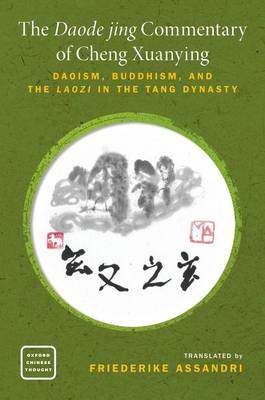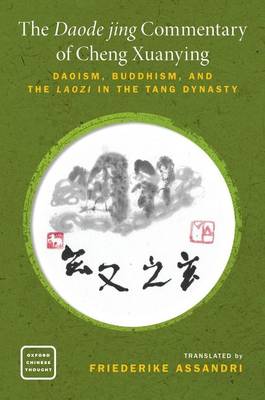
Bedankt voor het vertrouwen het afgelopen jaar! Om jou te bedanken bieden we GRATIS verzending (in België) aan op alles gedurende de hele maand januari.
- Afhalen na 1 uur in een winkel met voorraad
- In januari gratis thuislevering in België
- Ruim aanbod met 7 miljoen producten
Bedankt voor het vertrouwen het afgelopen jaar! Om jou te bedanken bieden we GRATIS verzending (in België) aan op alles gedurende de hele maand januari.
- Afhalen na 1 uur in een winkel met voorraad
- In januari gratis thuislevering in België
- Ruim aanbod met 7 miljoen producten
Zoeken
The Daode jing Commentary of Cheng Xuanying
Daoism, Buddhism, and the Laozi in the Tang Dynasty
€ 164,45
+ 328 punten
Omschrijving
This book presents for the first time in English a complete translation of the Expository Commentary to the Daode jing written by the Daoist Cheng Xuanying in the 7th century CE. It includes a thorough introduction by the editor and translator that explores the origins of the commentary and its political and social context.
Specificaties
Betrokkenen
- Vertaler(s):
- Uitgeverij:
Inhoud
- Aantal bladzijden:
- 438
- Reeks:
Eigenschappen
- Productcode (EAN):
- 9780190876456
- Verschijningsdatum:
- 9/11/2021
- Uitvoering:
- Hardcover
- Afmetingen:
- 241 mm x 159 mm
- Gewicht:
- 907 g

Alleen bij Standaard Boekhandel
+ 328 punten op je klantenkaart van Standaard Boekhandel
Beoordelingen
We publiceren alleen reviews die voldoen aan de voorwaarden voor reviews. Bekijk onze voorwaarden voor reviews.








